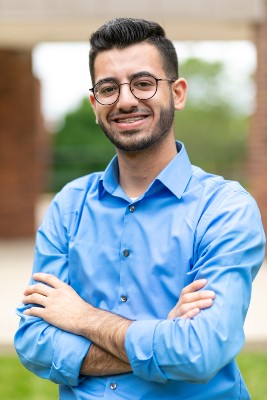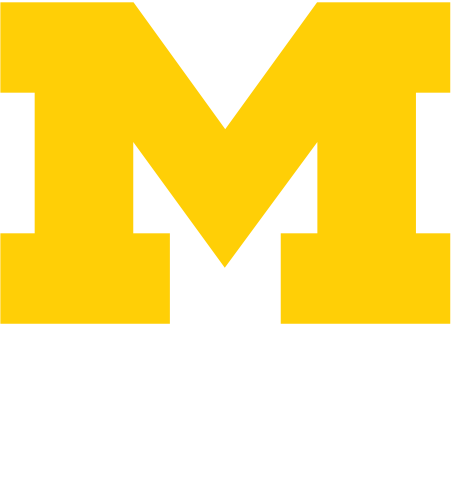I AM FPHLP 2019: Ali Fakih

Ali Fakih was part of the Michigan FPHLP 2019 cohort. He is a graduate of Wayne State University with a bachelor’s degree in public health Honors and a minor in Sociology. During his FPHLP summer, he interned at the Michigan Medicine Community Health Services in Ann Arbor, Michigan.
At Ali’s field placement he worked with the Program for Multicultural Health (PMCH). At PMCH, he designed, implemented, and evaluated culturally responsive workshops for two distinct populations, young children and older adults. Ali had to be intentional about tailoring each workshop to the population he was working with and this taught him a lot about how to engage with communities that look different from him and have different needs. He also worked with the Community Health Needs Assessment (CHNA) program where he conducted grantee spotlight interviews. This was to highlight the grant process and the different work their grantees were doing to address health disparities in their respective communities. Ali also created and shared a research presentation on a health-related issue of his interest which pertained to “The Mental Health Struggles Among Middle Eastern Refugees” to colleagues and co-interns.
Ali discovered FPHLP as a freshman when he was searching for professional opportunities that would allow him to gain hands-on, real world experiences in public health. Ali spent the next year building a strong academic and extracurricular foundation so that he would be a competitive applicant for the next cycle. What intrigued him most about FPHLP was its multifaceted, interdisciplinary components. FPHLP is a very holistic program in the sense that it provides you with a variety of experiences. Ali felt as though the internship experience, mentorship opportunities, and professional development workshops were integral in molding him as a future public health leader and helped Ali solidify his niche in the field.
The highlight of Ali’s FPHLP experience was the amazing cohort of peers he spent time with! FPHLP was obviously very valuable from a professional point of view but learning about the backgrounds and experiences of his peers gave Ali a new outlook on life. It also encouraged him to share his own culture and background with them as well. Another highlight was presenting his research and sharing his summer experience with his peers, mentors, and other individuals at the Centers for Disease Control in Atlanta, Georgia.
A challenge Ali had to overcome during his time in FPHLP was learning how to work with people who are very different from himself. While his cohort was the ultimate highlight of Ali’s experience, working in a team setting with people who do not necessarily have the same experiences or backgrounds was challenging at first. He learned to remain open minded and level-headed, making a conscious effort to reflect on his strengths and weaknesses. He also had to learn to acknowledge the implicit bias he may hold. This proved to be a strong asset that he continues to implement in his everyday endeavors and will surely be applicable as he embarks on future experiences in various spaces. Most of all, Ali learned how to be more collaborative and flexible when working with a team, especially as it pertains to efficiency and innovation.
Ali’s experience with the CDC solidified that an individual-level approach to medicine is not enough; rather, he must also delve deeper to understand and address the health inequities being perpetuated by a flawed system. This revelation led Ali to seek hands-on training to be a more effective advocate on a policy level. As a health policy and research analysis intern for Detroit Council Member Raquel Castaneda-Lopez, he researched environmental justice ordinances and proposed policy recommendations that laid the foundation for future legislation surrounding air quality in Detroit. He got a glimpse of what bridging the gap between research and policy entails. Furthermore, Ali is currently working as a Research Assistant at Karmanos Cancer Institute in partnership with the Arab Community Center for Economic and Social Services (ACCESS) Cancer Action Coalition on a research study regarding the economic consequences of cancer care among Arab Americans in Metro-Detroit. This is an area he is passionate about because of his family’s personal experiences. These experiences continuously motivate Ali to be an active physician in the field of public health. As a result of working for and with underserved communities, he has developed a deep understanding and drive to serve those in need and to advocate for long-term solutions for people of color.
Ali’s future plans include pursuing an MD/MPH to use his training as a physician to identify and ameliorate health disparities in underserved communities. Ali is particularly interested in the intersection of clinical care and health policy, which will allow him to engage with communities and conduct and translate research into evidence-based policy.
Ali’s advice to anyone considering applying is to put your best foot forward and apply yourself. He cannot stress enough that essays and sharing your personal narrative is what will differentiate you from applicants. Being as authentic and genuine in your application will go a long way, and if you are well intentioned it will reflect in your story. This was definitely a life changing professional experience, but he grew and learned just as much personally. Go in with an open mind and an open heart, fully immerse yourself, be ready to learn a lot, and make sure to have fun!


